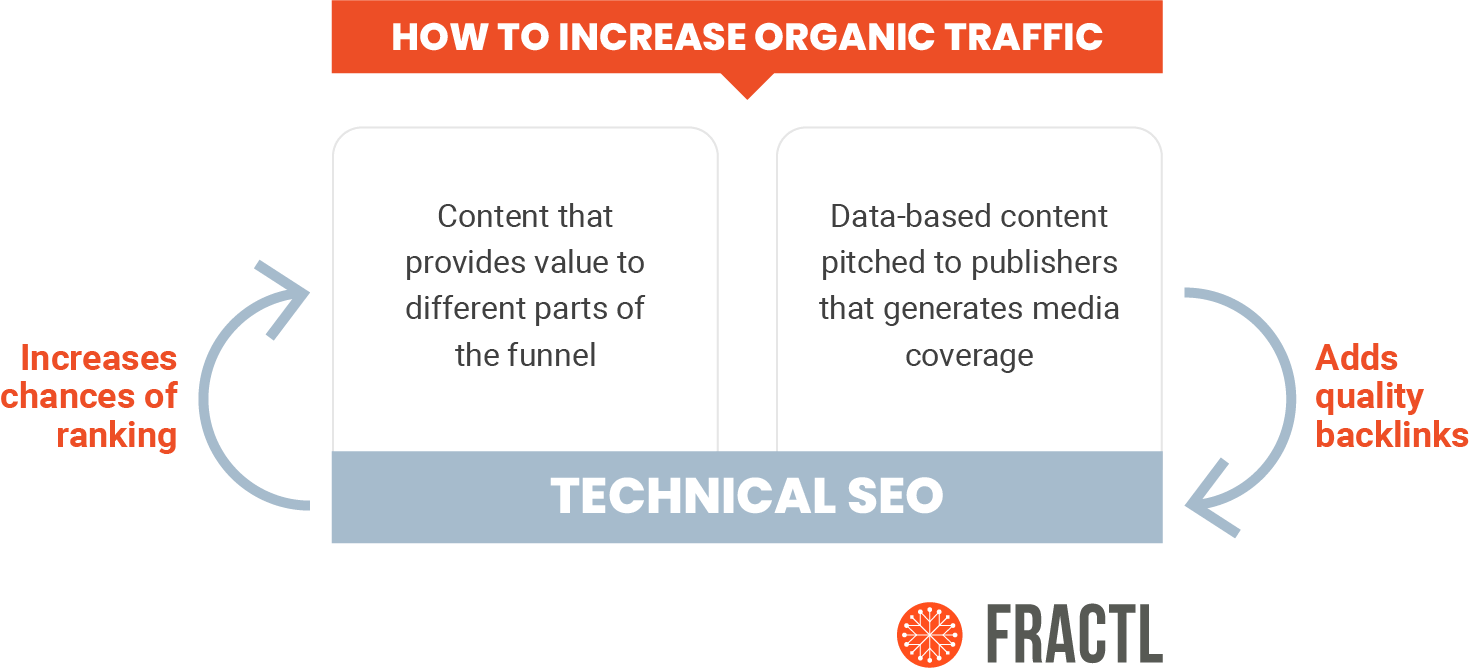
Both content marketing and strategy have many benefits. Both build on your brand and expertise. Which one should you use, though? You can find out by reading on. Below are the pros and cons for each. And how can you decide which is right for your business. You should not be the only one who decides on a content marketing method. And once you know which method is right for you, the rest is simple. The next step is deciding what kind of content to create.
Content strategy can be described as a plan.
A content strategy is a guideline for how to use content to reach people. You need to develop a strategy that addresses your audience's needs and answers their questions. Your content should be informative and entertaining and it should convert strangers into fans and customers. A content marketing strategy is not essential for all businesses, but it is vital for larger companies. A written plan for content marketing will help ensure that everyone involved in your efforts to market your brand is on the same page.
The most effective content marketing strategy involves identifying your target audience as well as their pain points. This can be achieved by researching your audience and talking to your support staff. Sales enablement is content designed to help customers understand the features, functions, and benefits of your product. It informs prospects, makes it easier to buy your product, and addresses common objections. This knowledge should be used to inform your content strategy.
Content marketing can be used to distribute content
Content marketing strategies can be a powerful way to increase sales and promote your brand. This strategy is made up of a variety of methods that are designed to increase brand awareness and customer engagement. Distribution is an important aspect of any content marketing plan. You must create a plan for action that includes KPIs or key performance indicators in order to maximize your content marketing success.

Your content should do more than promote your products, regardless of how it is distributed. The content should elicit a desired action from readers, whether that's sharing your content on social networks, signing up for a newsletter, or downloading an ebook. Each call should be optimized for a specific goal. Content marketing, then, is a tactical extension of your content strategy. It focuses on creating, measuring, then distributing content. However, the formula is virtually the same.
It is a way to build on your brand
Developing a content strategy is an important part of your overall marketing strategy. Whether your strategy is focused on social media, blogging, or email marketing, you must have a clear goal for each piece of content. It is easier to target the right audience and get the results that you want by creating content that is more specific. You can link to ecommerce pages and social media accounts.
The first step in creating a content strategy is to determine your brand's personality. This isn't the exact same as creating a personality branding, which is sometimes a bit personal. This is how people will relate to you. Be as authentic as possible, but make sure it is consistent with the company's mission, values, and personality. Once you've established a brand voice, you can craft a content strategy to build off of this.
It enhances your expertise
Content strategy is key to the success of a business. This approach is focused on how you distribute information and who your content will reach. Content strategists are able to identify the interests of business owners and devise a strategy for reaching them through their content. It is crucial to identify your audience and the best ways to engage them.

Understanding your customer's needs is essential. For related search terms, you can conduct keyword research. Then create content to satisfy those search terms. Your content should be useful to your audience, and should eventually lead to a sale. Your content strategy should help you establish yourself as an expert in your field. This requires you to be able deliver value information and make your business a reliable source of information for customers.
FAQ
What are the advantages of content marketing?
By creating high-quality content, content marketing can help drive sales leads and sales. Content marketing also provides a steady stream of fresh, original content that can be used to promote products and services. Additionally, content marketing can increase brand awareness and build trust with potential customers. Additionally, content marketing helps to project a positive image about your company.
What are the content strategies for different topics?
Content strategy is an umbrella term used to describe all aspects of how you create, manage, distribute, measure, and optimize content for digital channels. It includes what you share on social media platforms like Facebook and Twitter as well as what you highlight on websites, blogs, and other online properties.
Content strategy is important because it defines how you decide where you focus your time and effort, which content types you should use, and what type of messages you send to your audiences.
Understanding the role of content in the overall business goals is crucial to help you realize them.
How many hours should I devote to content marketing each week?
It depends on your situation. There may not be a need for content marketing. You will need to spend at least an hour a day if your goal is to increase traffic to your website.
Do I need an agency for Content Marketing?
No! There are many online tools to help you create high-quality content. Agencies tend to charge higher prices for their services.
Why should I have a Content Marketing Strategy in place? Why not just post social media updates or send emails?
Two reasons to ignore Content Marketing Strategy are:
-
You may think that social media posts or email marketing is enough to get people talking.
-
This type of content might not be practical if you haven’t yet tried social media posting or email marketing.
Both of these assumptions are wrong.
Email marketing, as well as social media posts, can be excellent ways to communicate with prospects or customers. However, these are not sufficient.
You can't rely on an email campaign to reach your goals. It should be part of a larger strategy. Social media posts are not enough to achieve your goals. They should be part and parcel of an overall strategy.
This is where the Content Marketing Strategy comes into play. A Content Marketing Strategy is a plan that sets clear goals for each piece. This will allow you to manage the entire content creation process.
As a consequence, you will be able spend more time on other vital aspects of running your business, such as growing your customer base and increasing conversion rates.
Although there are many benefits to a Content Marketing Strategy it does not mean that it is easy.
It is important to have a strategy.
Statistics
- To further show the importance of this, 89% of people have stopped doing business with a company because of a poor experience. (neilpatel.com)
- According to our research, 65% of companies with very successful content marketing in 2021 ran content audits at least twice a year. (semrush.com)
- According to our research, brand awareness, attracting traffic, and generating leads remain the key content marketing goals in 2022. (semrush.com)
- Forty-seven percent of buyers view 3 to 5 pieces of content before engaging with a sales representative. (mailchimp.com)
- Measure your goals with a progress indicator of 0-100%. Make your goals collaborative and transparent (semrush.com)
- Out of the 1,500 marketers we surveyed for our State of Content Marketing report, 78% who felt their content marketing strategy was exceptionally effective in 2021 had documented their strategy. (semrush.com)
- In fact, would pay more for a better customer experience, and 86% of B2B buyers would pay more. (neilpatel.com)
- According to the Content Marketing Institute, 70% of B2B marketers and 86% of B2C marketers surveyed use content marketing in some form or other. (criteo.com)
External Links
How To
What are the top content marketing platforms available?
While no platform works for all industries, there are some that work well in certain industries. For example, Hubspot has been proven to increase conversion rates by almost 50%, so its software is widely used among marketers.
Not all tools are created equally. Some tools offer better analytics tracking while others make it easier to collaborate between teams. Others offer A/B testing features that can help improve your content marketing ROI.
Before you decide on a platform, think about the following: What are their pros and cons? Does it suit my needs now or in the future? And what about in 2 Years?
Entrepreneur Magazine's top five content marketing platforms are listed below.
Marketo Content Studio #1 Content Marketing Platform
Marketo is an enterprise social media management software provider. It provides a variety of products and services including CRM software, social media publishing tools, and analytics dashboards.
They also offer a content Studio that allows businesses access to a range of pre-made templates as well as graphics that can easily be customized.
This means you don’t have to spend hours creating new graphics or writing new content. Instead, focus on creating content that is relevant to your audience.
Marketo makes it easy to include images and videos in your blog posts. This visually enhances your blog posts and increases reader engagement.
Marketo won't allow you to edit your image or video files.
Trello: Content Marketing Platform#2
Trello is similar with Kanban boards in project administration. Both feature task lists that users can assign to each other and track progress.
Trello allows for you to create boards for each team member, and assign them specific responsibilities. It allows you to share information among workers in a simple workflow.
Trello does not require special software to operate, unlike Kanban boards. So you can use it on virtually any device.
Trello allows you to invite others to collaborate on projects, without sharing sensitive data.
This allows you to create a private forum and only reveal the necessary details to others who need them to complete a task.
Google Suite Content Marketing Platform 3
Google has a wide range of products designed specifically for business owners. Google's G Suite offers Google Docs and Sheets as well as Slides and Slides.
This application is not free. You will need to pay for each user individually. If you intend to use them multiple times, there are many plans that start at $5 per monthly.
For example, if you want to create a document and embed a link from another website, you would need to purchase two licenses.
However, if only one document is needed, you will be able to create it free of charge.
A significant advantage of using Google tools is that they integrate well with other apps like Gmail. Google tools are easy to use and allow you to email links to documents. You can also store data in Google Drive.
Hubspot Content Marketing Platform 4
HubSpot has a great reputation as a web-based advertising tool. It offers many functions.
Through its platform, users can manage different aspects of their websites, landing page, and blogs. They can also create automated emails and track conversions.
HubSpot integrates with Salesforce and WordPress so that you can connect all three.
HubSpot integrates well with over 200 third party apps. This is one the most attractive features. This allows you automate tasks and generate reports using real-time data.
You won't have the ability to publish content directly via HubSpot. However, you can export it to many formats, such as HTML, PDF, Word.
HubSpot offers an unlimited trial version of its pricing platform. HubSpot offers a free trial version. However, you can upgrade to a paid account to gain unlimited access.
HubSpot offers a variety of solutions, including a blog platform and an eCommerce solution.